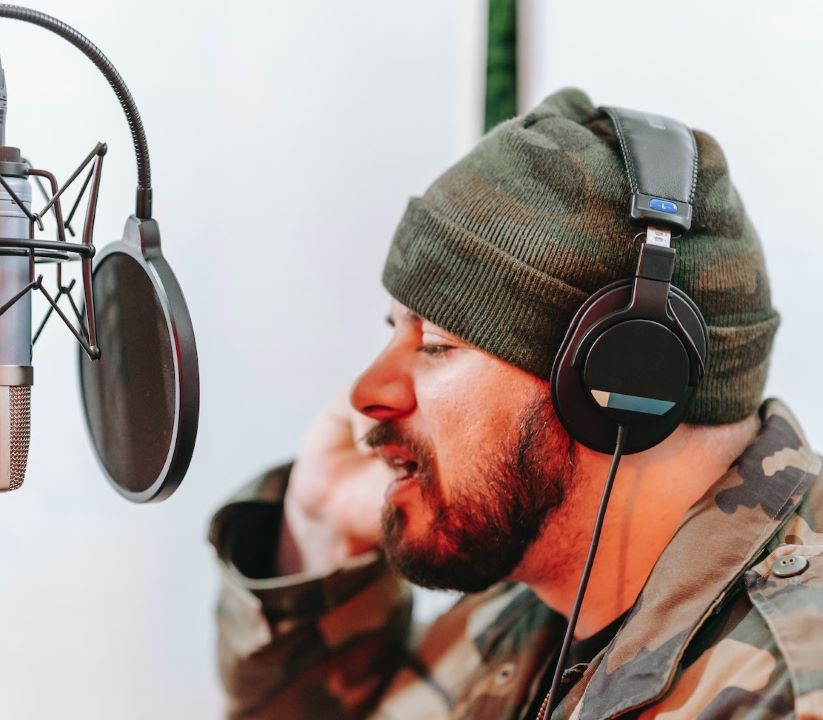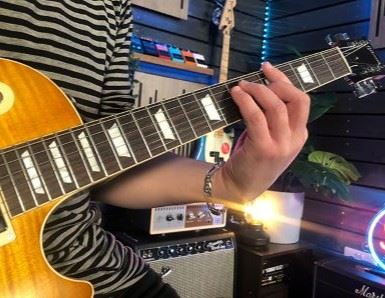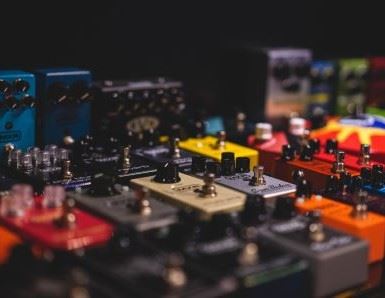What To Expect At Your First Singing Lesson
Published on 02 May 2023
Disclaimer: The information in this article is provided by the guest blogger and does not necessarily reflect the views and opinions of guitarguitar.
So, you’re thinking about taking singing lessons and you’re probably wondering what to expect at your first singing lesson. In my 15 years of working as a singing teacher and professional singer, I have had the pleasure of meeting many professional musicians.
When I chat to those musicians who are thinking about learning how to sing, or have an interest in performing or creating new music, one common question that I get asked is: Are people born good singers? In short, the answer is “No” - Your voice is an instrument just like any other and needs to be developed, through hard work, professional encouragement and hours of practice.
Yes, some singers may find that their voice is naturally set up in a way that is ideal for good vocal production but this advantage can be trained in all voices, through technical exercises and studying alternative approaches. Think of your vocal cords like a guitar, if the strings are untuned, the sound won’t be pleasant, but tune the strings and each chord will sound as it should.
The difficulty with singing is that our instrument is our entire body, not just the vocal cords. As singers, we have to understand the balance between breath, support and phonation to best prepare ourselves for healthy, attractive singing. It’s essential for singing teachers to clearly explain the singing lesson process to beginner singers, so that their journey is made less daunting and is instead an enjoyable and rewarding experience that allows them to accomplish their ambitions.
In this guide, I want to provide a brief overview of the process of learning how to sing, so that those interested in bettering their vocal skills can gain a better understanding of what is involved. I encourage anyone thinking of taking up singing to find the approach that works best for them.

Your First Singing Lesson
As a singing teacher, I've had the pleasure of working with many different types of students, from beginners to seasoned professionals and no matter what their experience level, they tend to share two things in common: enthusiasm for improving their singing and some level of anxiety about starting the lesson.
If you're thinking about taking singing lessons, I want to assure you that there's no need to be nervous. The goal of any singing teacher is to make your first lesson as enjoyable and informative as possible. Here's a little bit about what you can expect.
How To Prepare For Your First Singing Lesson
The first thing you'll need to bring to your first singing lesson is a willingness to learn. You’re not expected to know everything there is to know about singing, but the expectation for you to be open to new ideas and techniques is paramount.
You'll also need to bring a notebook and a pen. You’ll be giving a lot of information in your first lesson, so it's important to take notes so you can remember everything.
Be sure to bring a bottle of water with you to stop your mouth and throat from drying out. Drinking water also allows your vocal folds to vibrate fully, improving your articulation and clarity when you sing.
You'll need to bring a song that you'd like to work on. It doesn't matter what the song is, as long as it's something that you enjoy singing.
Finally, I always encourage my students to record their lessons. This gives you the opportunity to listen back to the lesson and pick up some points you may have missed or forgotten. It also gives you an opportunity to analyse the progress you’re making week by week. After about 10 lessons, I offer to record my students using my recording equipment (details below) that gives a more professional quality to the standard of recording.

What To Expect At Your First Singing Lesson
Your first singing lesson will typically start with a warm-up. This is a series of exercises that will help to prepare your voice for singing and give your teacher a good idea of range, strength, intonation so they can make an informed decision on how best to progress.
Once you’ve done the warm-up exercises, you’ll start working on the song that you brought with you. A good teacher will help you to identify the key of the song and to find the right vocal range for you. You should expect to work on your vocal technique, such as breath support, vocal placement, and projection. As you work on the song, your teacher will give you feedback on your singing: let you know what you're doing well, and point out areas where you can improve.
At the end of your lesson, it is imperative to have a structured approach to homework. This might include practising the song that was worked on, or it might include learning some new vocal exercises.
Students work with a teacher for around an hour per week but the dedicated time outside of the lesson is where you’ll find you really advance. You should aim to attend your next lesson having completed the objectives outlined by your teacher since you last met. This progress can only happen in tandem with good instruction and a positive work ethic in your practice.
What To Do After Your First Singing Lesson
After your first singing lesson, it's important to practise what you've learned. The more you practise, the better you'll become at singing.
It's also important to attend any subsequent lesson prepared. This means practising the song that you’re going to work on, and it also means preparing any questions that you have.
I know that taking voice lessons can be a little bit intimidating, but I want to assure you that it's worth it. With hard work and dedication, you can learn to sing better than you ever thought possible.
Here are a few additional tips for singer-songwriters who are just starting out with singing lessons:
- Be patient. It takes time and practice to develop good singing technique. Don't get discouraged if you don't see results immediately
- Be open to feedback. Your singing teacher is there to help you improve, so be willing to listen to their feedback and make changes to your singing
- Have fun! Singing should be enjoyable, so don't take it too seriously. Relax and enjoy the process of learning to sing better

A Message from Brian:
If this article has been useful or if you have any questions, I would love to hear from you. I teach one-to-one singing lessons in Glasgow and offer online lessons internationally so feel free to contact me, I would love to hear from you: www.singinglessonsinglasgow.com
My Singing Lesson Equipment
In my voice lessons, I use the following equipment:
- Roland Piano HP-2 Digital Piano
- Rode Condenser Mic
- PreSonus Audio Interface
- Ordo Music Stand
In my own performing:











